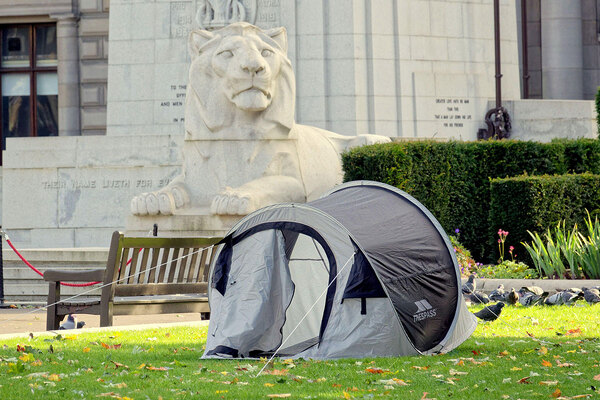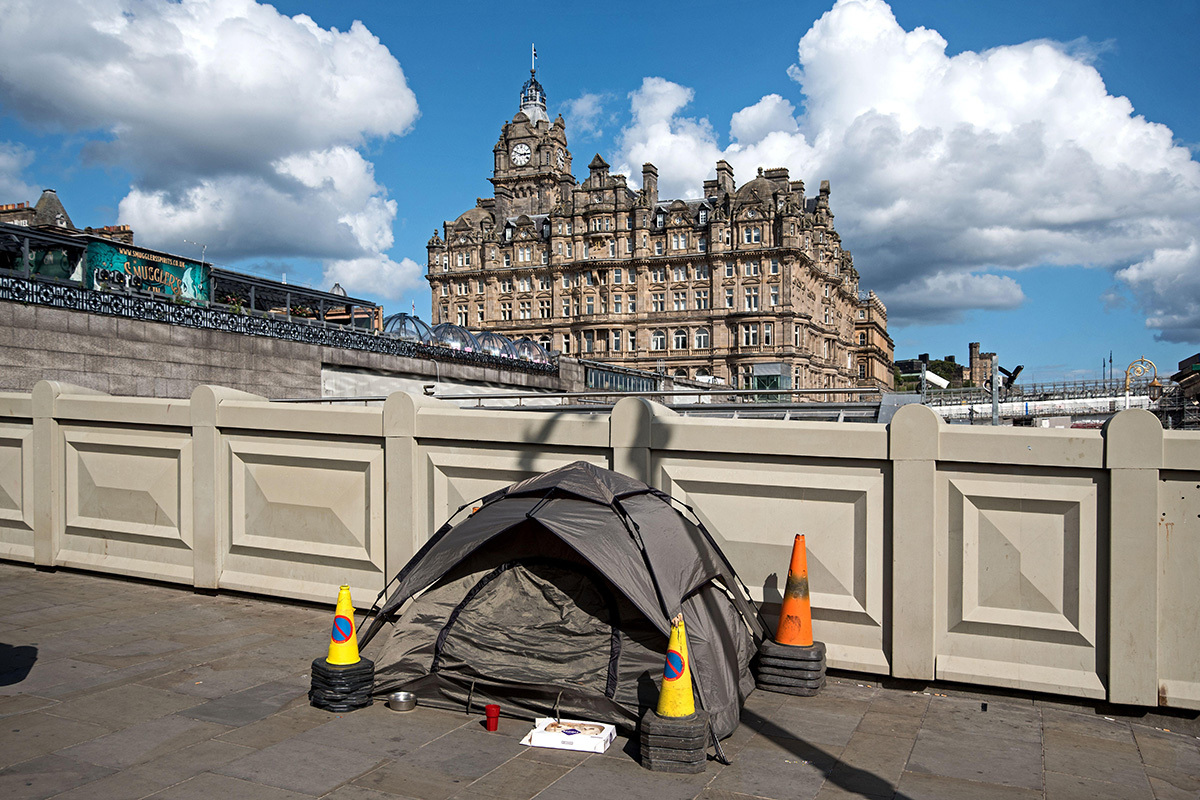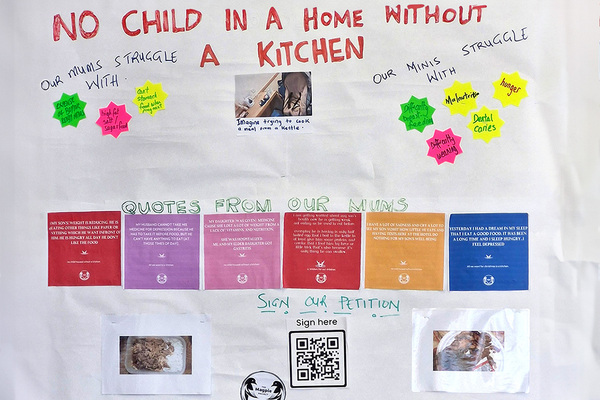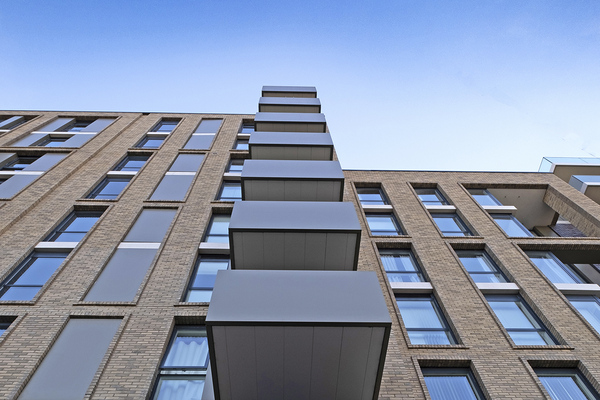You are viewing 1 of your 1 free articles
CIH warns Scotland’s homelessness plans at risk and declares housing emergency
Scotland’s homelessness plans are at risk without a strategy for the private rented sector (PRS), the Chartered Institute of Housing (CIH) has warned as it has declared a housing emergency across the country.

In a report, the CIH noted that fewer people experiencing homelessness are successfully finding permanent accommodation in the PRS, despite recent reforms to the sector.
Instead, the researchers said, many households are “facing lengthy stays in temporary accommodation, waiting for social tenancies that are in short supply” – particularly single people and larger families.
As local authority housing and homeless services remain under “immense pressure”, the CIH said “a renewed focus on the role of the PRS and how private tenants and landlords can be better supported” was needed. It called for the Scottish government to “set a clear vision for the sector” and publish a final PRS strategy.
At its national conference today, CIH Scotland declared that the country has moved past a housing crisis and is now in a “housing emergency”.
The report welcomed the Scottish government’s plans to improve tenant rights through a forthcoming Housing Bill, saying “steps need to be taken to make the PRS a secure, affordable, accessible and attractive housing option”.
However, it added that “well intentioned interventions are not always having the intended results”. Despite a new tenancy regime and greater protection against evictions, fewer homeless people are successfully finding permanent accommodation in the PRS.
The Scottish government’s recent rent cap for existing private tenancies “has not provided the blanket protection for tenants that the approach suggested it should”. Tenants in some areas have still experienced rent increases “far higher than inflation” due to “loopholes and unscrupulous practice”, the report found.
The CIH said that the PRS is “lacking strategic direction and leadership”. It added that “reactive policymaking in the absence of robust data” has created uncertainty and may risk “the loss of residential accommodation” if landlords decide to leave the market in significant numbers.
The report highlighted that the percentage of homeless households being housed in a PRS tenancy has decreased each year since 2021.
It recommended that the Scottish government should explore a PRS charter and more resources for councils to carry out enforcement activity.
It should also review grounds for possession and the housing tribunal service, expand access to tenancy deposit schemes and consider build-to-rent homes to increase PRS supply.
Since late 2018, Scotland has introduced tough legislation meant to prevent homelessness and rapidly rehouse people, but overstretched councils are increasingly falling short of their statutory duties.
In February, an Inside Housing investigation found that last financial year, Scottish councils spent more than £160m on temporary accommodation – a rise of 50% in only three years.
Under the Homeless Persons (Unsuitable Accommodation) (Scotland) Order, which came into force in 2021, local authorities can only use B&B-type accommodation for anyone experiencing homelessness for a maximum of seven days.
According to official data, there were 2,335 breaches of this order between 1 April and 30 September 2023 – a 19% increase compared to the previous six months.
The latest homelessness statistics covering April to September 2023 showed a 10% rise in the number of open homelessness cases and an 8% increase in the number of households in temporary accommodation compared to the same period in the previous year.
Gavin Smith, chair of CIH Scotland, said: “The PRS is a vital part of our housing infrastructure and has the potential to alleviate homelessness in Scotland. However, we’re currently seeing Scotland’s PRS contract, with 68% of local authorities who took part in this research reporting an increase of private landlords leaving the market in their area and 47% concerned about increasing levels of homelessness from the PRS.
“The reduction in supply further amplifies the issue of demand with record levels of people living in temporary accommodation and building figures dropping.
“This report calls on the Scottish government to acknowledge the PRS as a systemic part of Scotland’s housing infrastructure and implement an evidence and strategic-based approach to its legislation and policymaking in this area.”
Patrick Harvie, Scotland’s tenants’ rights minister, said: “We fully recognise the role that the private rented sector plays in the housing market. Against a backdrop of rapidly rising rents throughout the UK our emergency legislation has provided protection for tenants against both large in-tenancy rent rises and eviction, with positive benefits.
“Recently published figures on homelessness show the introduction of emergency legislation to protect tenants during the cost of living crisis has accompanied a reduction in the number of private renters becoming homeless.
“At the same time Scottish Landlord Register data shows that the number of registered properties for rent in Scotland between August 2022 (339,632) and January 2024 (345,374) has increased by 1.7%. Private renting is a very dynamic sector and has always been characterised by some landlords leaving and others entering.
“We have been developing the Housing Bill to deliver a New Deal for Tenants, including the introduction of long-term rent controls for the private rented sector, creating new tenants’ rights.”
Sign up for our Scotland newsletter
Already have an account? Click here to manage your newsletters











